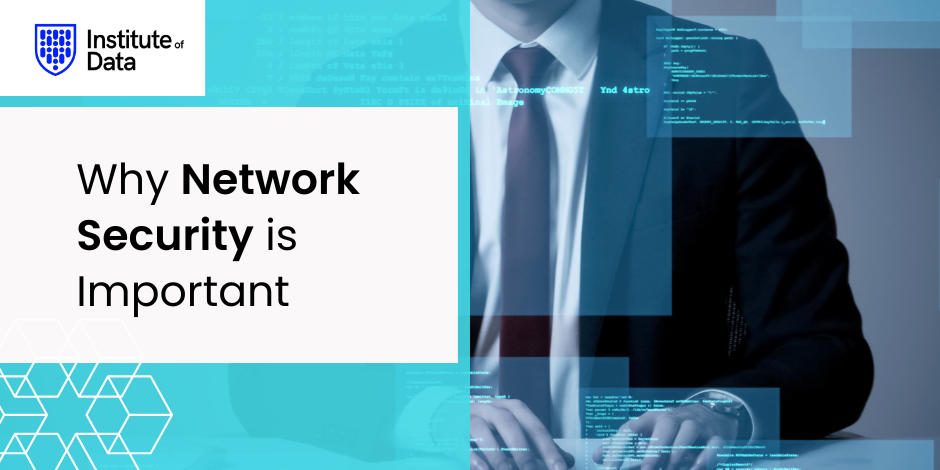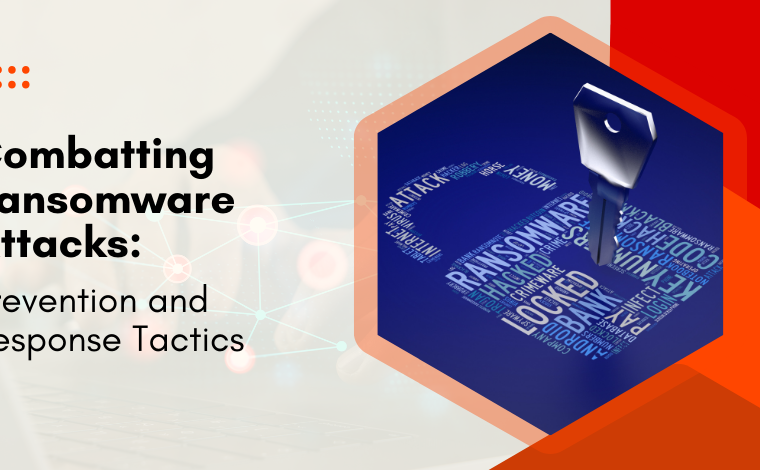Why Network Security is Important?

Stay Informed With Our Weekly Newsletter
Receive crucial updates on the ever-evolving landscape of technology and innovation.
Network security is a critical aspect of any business or organisation’s technology strategy.
It safeguards your information systems from various threats, including cyber-attacks, malware, and data breaches.
In the first quarter of 2023, global data breaches exposed 6.41 million data records, affecting millions of individuals worldwide.
With the increasing reliance on digital platforms and the internet, understanding why network security is important has become more crucial than ever.
The significance of network security

Network security is the practice of protecting a computer network from intruders, whether targeted attackers or opportunistic malware.
It involves implementing measures to detect and prevent cyber threats from entering or spreading on your network.
Network security is not a one-size-fits-all solution. It requires a layered approach, with multiple levels of security measures in place.
This approach ensures that every individual aspect of your network is protected, providing a robust defence against potential cyber threats.
Why network security is important
Network security is essential for several reasons.
Firstly, it protects sensitive data. Businesses and organisations often handle sensitive information, including employees’ and customers’ personal data, financial records, and proprietary company information.
Without robust network security, this data could be exposed to cybercriminals, leading to significant financial and reputational damage.
This is one of the primary reasons why network security is important.
Secondly, network security ensures business continuity.
Any form of network disruption can lead to significant downtime, affecting productivity and resulting in financial loss, showcasing precisely why network security is important.
With robust network security, potential threats can be identified and mitigated before they cause any disruption.
Why network security is important: key components

Understanding why network security is important is the first step.
The next is to understand the key components that make up a robust network security system.
These components work together to provide a comprehensive defence against potential threats.
Firewalls are the first line of defence in network security. They monitor and control incoming and outgoing network traffic based on predetermined security rules.
They establish a barrier between a trusted internal network and untrusted external networks, such as the Internet.
Antivirus and antispyware
Antivirus and antispyware software are essential tools in network security.
They help detect, quarantine, and remove malicious software that might have bypassed your firewall.
Regular updates are crucial to ensure they can recognise and defend against the latest threats.
Another key component is intrusion prevention systems (IPS). These monitor network and system activities for malicious activity.
An IPS can detect and prevent threats, such as denial of service (DoS) attacks, distributed denial of service (DDoS) attacks, and other exploit activities.
Implementing network security

Now that we’ve understood why network security is important and its key components, the next step is implementation.
Implementing network security involves a series of steps, each crucial to ensuring the overall security of your network.
The first step is to conduct a risk assessment. This involves identifying potential threats to your network and understanding the potential impact of these threats.
The risk assessment will guide your network security strategy, helping you prioritise your efforts and resources.
Developing a network security policy
Developing a network security policy is a crucial step in implementing network security.
This policy should outline the acceptable use of network resources, guidelines for remote access, and procedures for handling security incidents.
It should be regularly updated to reflect changes in technology and potential threats.
Another important step is to educate employees about network security. Employees are often the weakest link in network security, and a single mistake can lead to a security breach.
Regular training can help employees understand the importance of network security and their role in maintaining it.
Conclusion
Understanding why network security is important is crucial in today’s digital age.
It protects sensitive data, ensures business continuity, and helps maintain trust with customers and stakeholders.
By implementing robust network security measures, businesses and organisations can safeguard their networks and ensure their long-term success.
Remember why network security is important, and that is that it isn’t a one-time effort. It requires continuous monitoring and updating to stay ahead of the ever-evolving threats.
With the right approach and resources, you can create a robust network security system that protects your business now and in the future.
To learn more about why network security is important, consider exploring the Institute of Data’s specialised Cyber Security program.
Alternatively, book a free career consultation with a member of our team to discuss the program further.




